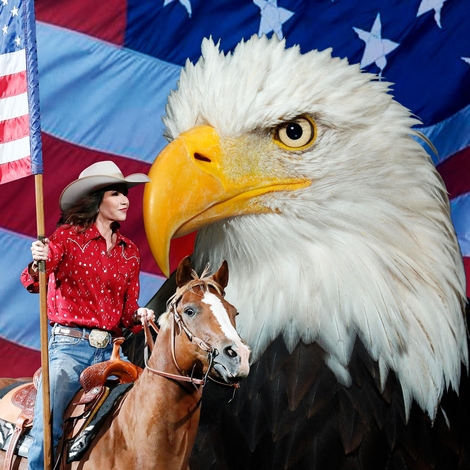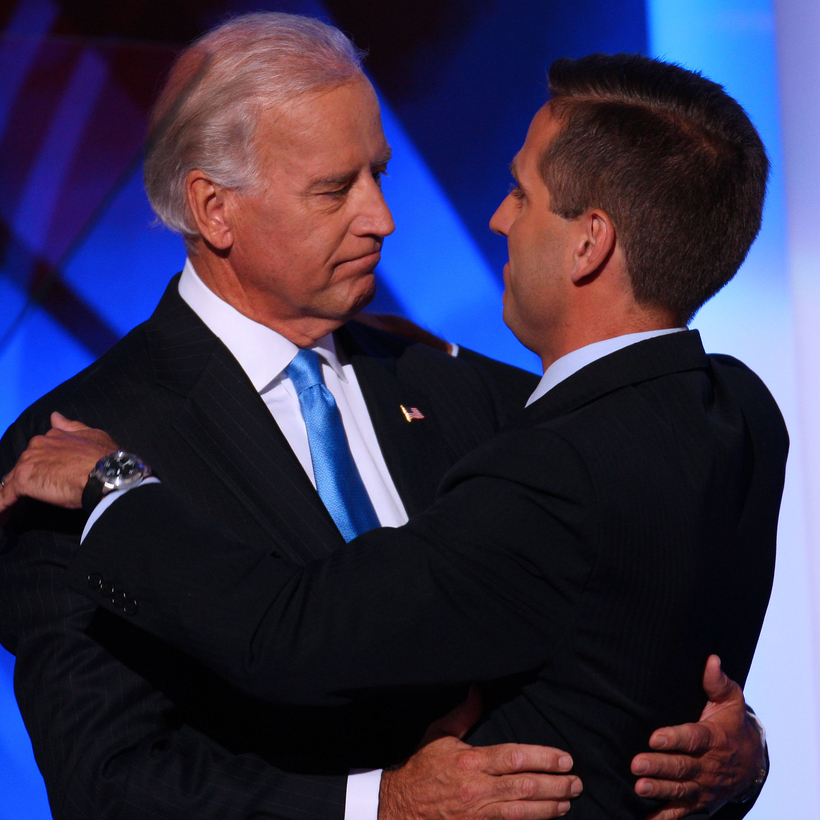A few years ago, at one of the many family weddings that one is obliged to attend if one is of Irish-Catholic stock in Scranton, Pennsylvania, my wife ran into an old college friend, a middle-aged man, who had a startled look on his face. “I just met your father and grandmother,” the friend said, “and they both kissed me on the lips.”
My wife was unperturbed. “Welcome to the club,” she said.
Joe Biden, you may have heard, spent the first 10 years of his life in Scranton. His tactile approach to human relations has been the subject of much scrutiny during his current presidential run. In April 2019, three weeks before he officially tossed his hat into the ring, he released a two-minute video acknowledging that some women had spoken out against him because he had touched or kissed them in a manner that they deemed inappropriate. “The boundaries of protecting personal space have been reset,” the former vice president said. “I get it. I get it. I hear what they’re saying. I understand it.”
In a remarkable pendulum swing, the countdown to Election Day has seen Biden’s physical expressions of affection recast in a more positive light. Arun Chaudhary, the White House videographer during Barack Obama’s presidency, posted to Twitter a 2018 clip of Biden comforting families who had lost loved ones in the shootings at Marjory Stoneman Douglas High School, in Parkland, Florida. Among those to whom Biden spoke was Debbi Hixon, whose husband, Chris, the school’s athletic director, was killed while trying to protect his students.
As Biden turned away from Debbi Hixon, the younger of her two sons, Corey, who has a genetic disorder called Kabuki syndrome, rushed to embrace the former vice president, tearfully exclaiming of his father, “I’m his son!” Biden’s intuitive reaction was to kiss Corey on his forehead, say, “Thank you for hugging me!,” and cradle the boy’s head to his chest. The video has been viewed more than 11 million times since it was posted on October 21.

A few hours after Chaudhary’s post, an attempted smear went spectacularly wrong when a man named John Cardillo, whose Twitter biography identifies him as “TV guy. #NYPD once upon a time,” posted a black-and-white portrait of the Democratic nominee planting a kiss on the left cheek of his 50-year-old son, Hunter, who is facing the camera. “Does this look like an appropriate father/son interaction to you?,” Cardillo wrote.
In a remarkable pendulum swing, the countdown to Election Day has seen Biden’s physical expressions of affection recast in a more positive light.
Cardillo’s post went viral for all the wrong reasons, with many users noting that Joe Biden has buried two of his four children—Beau, his eldest, who died of brain cancer in 2015, and an infant daughter, Naomi, who was killed in the same 1972 car accident that took the life of Biden’s first wife, Neilia. The overall gist of the critical comments was that it is normal for a father to show physical affection for his child, no matter the child’s age, and that it was unseemly for Cardillo to infer that … well, what, exactly? If there were sick thoughts afoot, they belonged to ex-#NYPD TV-guy Cardillo.
Having married into a Scranton family whose elders occupied the same childhood milieu as the future vice president, I can attest that Biden’s behaviors, no matter how hard his detractors try to frame them as deviant, are the norm for the Scranton Irish of his generation. I have repeatedly been kissed on the head and lips by my father-in-law and his extensive relations in northeast Pennsylvania. I have been pulled into hugs by adult men exclaiming, “God love ya!” (the same thing that Biden said to Debbi Hixon), and felt their whiskery cheeks brush against mine. Indeed, among these huggers is Tom Bell, the eldest of my father-in-law’s seven younger siblings, who was one of Biden’s best friends growing up and is now a frequent go-to source for reporters looking for colorful stories about, say, the time that feisty young Joe jumped on a still-burning heap of coal tailings.
The touchy-feely Scranton-Irish way is a peculiar mash-up of cultural influences, combining the heart-on-sleeve exuberance of the old sod with an esoteric, distinctively regional fealty to midcentury fashions and locutions. The men still wear saddle shoes. The women still wear hairbands. Such terms of endearment as “honey,” “dear,” and “sweetie” are applied equally to boys and girls, and deployed without embarrassment by grown men, often to address their grown sons. (In Promise Me, Dad, his 2017 memoir about coping with Beau’s illness and death, Biden re-creates conversations in which he calls his firstborn “honey.”)

It took some time for me to acclimate to this Scranton-Irish brand of warmth. But I always understood the spirit in which it was offered. I grant that it is not for everyone, especially in this era in which the boundaries of personal space have been reset. I get it. I get it. Still, I never remotely regarded this behavior as malevolent or creepy.
I am joined in this belief by Stephanie Carter, the wife of Ash Carter, the former secretary of defense. Biden’s detractors have circulated a photo of Stephanie on the day of her husband’s 2015 swearing-in, in which the then vice president has a hand on each of her shoulders and is evidently nuzzling her neck. Exasperated by this photo’s ongoing use as evidence to support the “creepy Joe” narrative, Stephanie Carter posted a short essay on Medium last year in which she explained that what the picture actually captures is “a close friend helping someone through a big day.”
Earlier that day, while walking into the Pentagon, Carter had slipped and fallen on some ice, rattling nerves already frayed by the momentousness of the pending occasion. At the start of the ceremony, Biden clocked her nervousness and asked if she was O.K. After the swearing-in, while her husband delivered a speech, Biden, stationed behind Stephanie, leaned in, she wrote, “to tell me ‘Thank you for letting him do this’ and kept his hands on my shoulders as a means of offering his support.”
By happenstance, among those watching this ceremony was my wife’s Scranton-raised youngest sister; she is married to one of Ash Carter’s nephews, a commander in the Coast Guard.
She was unbothered, she told me, by Biden’s interaction with her husband’s aunt. It looked like an appropriate Scrantonian-civilian interaction to her.
David Kamp is a New York–based writer and the author of Sunny Days: The Children’s Television Revolution That Changed America


